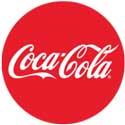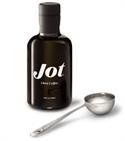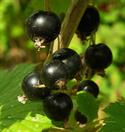Coca-Cola
Coke Absorbs Pandemic Lessons In China That May Not Apply Globally
 Coca-Cola CEO James Quincey says the lessons the company has learned from the coronavirus experience in China will serve to guide it in the months, and possibly years, ahead, but those lessons may not fit all countries’ situations. In a conference call with investors, Quincey said there are three phases in the Chinese response to COVID-19, the first of which was social distancing. China now has entered the stage representing the “graduated re-opening of society, still with the specter of the virus over us, with the reality of an impacted economy.” Following that stage will be what can be called the new normal. For the time being, Coca-Cola has “paused” its brand marketing spend due to the COVID-19 outbreak, Quincey said, and its “earliest re-engagement” will work alongside “the recovery in China.” Anticipating such as recovery, the company is planning key moves with bottlers to regain momentum, including “our pre-summer sales promotion and increased cooler placement.” Quincey noted that the lessons learned by Coke in China may not be globally applicable.[Image Credit: © THE COCA-COLA COMPANY]
Coca-Cola CEO James Quincey says the lessons the company has learned from the coronavirus experience in China will serve to guide it in the months, and possibly years, ahead, but those lessons may not fit all countries’ situations. In a conference call with investors, Quincey said there are three phases in the Chinese response to COVID-19, the first of which was social distancing. China now has entered the stage representing the “graduated re-opening of society, still with the specter of the virus over us, with the reality of an impacted economy.” Following that stage will be what can be called the new normal. For the time being, Coca-Cola has “paused” its brand marketing spend due to the COVID-19 outbreak, Quincey said, and its “earliest re-engagement” will work alongside “the recovery in China.” Anticipating such as recovery, the company is planning key moves with bottlers to regain momentum, including “our pre-summer sales promotion and increased cooler placement.” Quincey noted that the lessons learned by Coke in China may not be globally applicable.[Image Credit: © THE COCA-COLA COMPANY]
PepsiCo May Benefit As Coca-Cola Ceases Operations In Lebanon Due To Pandemic
Key COVID-inspired Trends Affecting Shoppers And Companies
 As the coronavirus pandemic rages on, and shopping habits evolve, the Coca-Cola company is likely to benefit from three trends: a return to trusted brands; a huge shift toward ecommerce, and a slimmer innovation pipeline, according to CEO James Quincey. Coke, for example, will torpedo smaller new product development efforts in favor of fewer but larger projects that are scalable. Because shoppers are spending less time in stores actually “shopping,” they’re relying on known brands, making fewer trips to stores. That means retailer promotions need to be very effective, focusing on multipack offers and promotional frequency. That means “ruthlessly prioritizing to deliver on core SKUs and key brands and helping customers simplify their supply chains,” Quincey said. Another key trend is rooted in consumers’ desire to stay safely at home. The answer is ecommerce and at-home delivery. Coca-Cola is shifting to package sizes appropriate for online sales while reallocating consumer and trade promotion spend to digital. The company does not believe these are short-term trends: they are an indication of how consumers will shop – and companies adapt – in a post-COVID world.[Image Credit: © THE COCA-COLA COMPANY]
As the coronavirus pandemic rages on, and shopping habits evolve, the Coca-Cola company is likely to benefit from three trends: a return to trusted brands; a huge shift toward ecommerce, and a slimmer innovation pipeline, according to CEO James Quincey. Coke, for example, will torpedo smaller new product development efforts in favor of fewer but larger projects that are scalable. Because shoppers are spending less time in stores actually “shopping,” they’re relying on known brands, making fewer trips to stores. That means retailer promotions need to be very effective, focusing on multipack offers and promotional frequency. That means “ruthlessly prioritizing to deliver on core SKUs and key brands and helping customers simplify their supply chains,” Quincey said. Another key trend is rooted in consumers’ desire to stay safely at home. The answer is ecommerce and at-home delivery. Coca-Cola is shifting to package sizes appropriate for online sales while reallocating consumer and trade promotion spend to digital. The company does not believe these are short-term trends: they are an indication of how consumers will shop – and companies adapt – in a post-COVID world.[Image Credit: © THE COCA-COLA COMPANY]
Coke’s Costa Coffee Chain Will Introduce New RTD Coffees In China This Year
 U.K.-based coffee chain Costa Coffee will debut its RTD Black Americano and Classic Latte drinks this year in China, in what is seen as a crucial market for the Coca-Cola-owned firm. The launch marks an important step in its multi-category expansion strategy, which was accelerated after Coca-Cola acquired the company last year. According to Chief Operating Officer Shakir Moin, China is a priority target because the coffee market is growing, with RTD coffee expected to increase the fastest though it is increasingly competitive. The mission is to offer busy consumers both high-quality coffee and convenience. The company plans to distribute the RTD products into Tier-1 and 2 cities first, which Moin cited as “high-potential markets,” before gradually entering other cities. The products will be available on e-commerce platforms, as well as in retail channels such as hypermarkets, supermarkets, convenience stores, traditional grocery stores, and vending machines in the country.[Image Credit: © THE COCA-COLA COMPANY]
U.K.-based coffee chain Costa Coffee will debut its RTD Black Americano and Classic Latte drinks this year in China, in what is seen as a crucial market for the Coca-Cola-owned firm. The launch marks an important step in its multi-category expansion strategy, which was accelerated after Coca-Cola acquired the company last year. According to Chief Operating Officer Shakir Moin, China is a priority target because the coffee market is growing, with RTD coffee expected to increase the fastest though it is increasingly competitive. The mission is to offer busy consumers both high-quality coffee and convenience. The company plans to distribute the RTD products into Tier-1 and 2 cities first, which Moin cited as “high-potential markets,” before gradually entering other cities. The products will be available on e-commerce platforms, as well as in retail channels such as hypermarkets, supermarkets, convenience stores, traditional grocery stores, and vending machines in the country.[Image Credit: © THE COCA-COLA COMPANY]
Danone
Strong Sales Of Plant-Based Products Lead Danone To Make Organizational Changes
 Danone says it will launch what is calling a Plant-based Acceleration Unit devoted whose mission will be to increase global plant-based sales outside of North America from $2.2 billion in 2019 to around $5.4 billion by 2025. The company owns and operates major plant-based brands including Alpro and Silk. The new unit will seek to expand into new categories such as coffee, but also leverage Danone’s plant-based expertise in baby food and healthy aging food solutions, while pivoting large brands into the plant-based sector. Francisco Camacho will lead the new unit, while remaining executive vice-president of Danone’s Essential Dairy and Plant-Based (EDP) International unit. The company announced that EDP North America, Danone’s largest business unit, will now “be recognized as a separate business” to strengthen the local focus of the business. Former Coca-Cola executive Shane Grant was appointed executive vice-president and CEO of Danone North America, effective May 11. The company’s EDP unit experienced a net sales rise of 4.6 percent for the first-quarter, thanks in part to the strong performance of its Alpro brand in Europe and Silk in North America.[Image Credit: © Danone]
Danone says it will launch what is calling a Plant-based Acceleration Unit devoted whose mission will be to increase global plant-based sales outside of North America from $2.2 billion in 2019 to around $5.4 billion by 2025. The company owns and operates major plant-based brands including Alpro and Silk. The new unit will seek to expand into new categories such as coffee, but also leverage Danone’s plant-based expertise in baby food and healthy aging food solutions, while pivoting large brands into the plant-based sector. Francisco Camacho will lead the new unit, while remaining executive vice-president of Danone’s Essential Dairy and Plant-Based (EDP) International unit. The company announced that EDP North America, Danone’s largest business unit, will now “be recognized as a separate business” to strengthen the local focus of the business. Former Coca-Cola executive Shane Grant was appointed executive vice-president and CEO of Danone North America, effective May 11. The company’s EDP unit experienced a net sales rise of 4.6 percent for the first-quarter, thanks in part to the strong performance of its Alpro brand in Europe and Silk in North America.[Image Credit: © Danone]
Nestle
Nestlé Philippines Expects Surging Demand To Ebb As Buying Power Sinks
 The current surging demand for its products is expected to be short-lived, Nestlé Philippines says, because many Filipino consumers have lost income because of the pandemic and the enhanced community quarantine (ECQ). In the near term, the company is ramping up production as it faces supply line shortages and a spurt in demand for food products among panic-buying consumers. The company had increased production to 80 percent from 60 percent in recent weeks after demand surged in March and April. Shipping delays, meanwhile, had caused a decrease in output. To address supply challenges, the company has put safety measures in place so that employees can report for work, and it is planning further ahead when ordering raw materials. To buoy demand, the company is considering adding free packs in products and increasing promotional strategies, an executive said.[Image Credit: © Nestle]
The current surging demand for its products is expected to be short-lived, Nestlé Philippines says, because many Filipino consumers have lost income because of the pandemic and the enhanced community quarantine (ECQ). In the near term, the company is ramping up production as it faces supply line shortages and a spurt in demand for food products among panic-buying consumers. The company had increased production to 80 percent from 60 percent in recent weeks after demand surged in March and April. Shipping delays, meanwhile, had caused a decrease in output. To address supply challenges, the company has put safety measures in place so that employees can report for work, and it is planning further ahead when ordering raw materials. To buoy demand, the company is considering adding free packs in products and increasing promotional strategies, an executive said.[Image Credit: © Nestle]
Q1 Profit Slides As Nestlé Pakistan Posts Hike In Revenues

Nestlé Pakistan posted healthy first quarter (January to March) revenues of $189 billion, a 2.6 percent increase over last year, despite COVID-19 lockdowns that severely impacted the sales of juices and water as well as products for the out-of-home channel. The Afghanistan border closure also had a major impact on exports. Despite the rise in revenues, net profit for the same period slid 33 percent because of higher financing costs, currency devaluation, higher input and energy costs, and the imposition of sales tax and federal excise duties on milk powder and beverages. In a statement, the company pledged to prioritize the health and wellbeing of its employees, foster business continuity, and support communities with relief efforts.[Image Credit: © Canon/Nestle]
Other Companies
Jot Coffee’s Ultra-Concentrated Brew May Be Just What Quarantined Java Junkies Need
 Coffee has been among the beverages most adversely affected by the global coronavirus lockdowns: beloved trips to the coffee shop have been replaced by brewing at home. So, might now be an opportune time to begin marketing a direct-to-consumer coffee that comes in a six-ounce bottle? Jot Coffee, founded by REBBL’s Palo Hawken and Andrew Gordon of Square Organics and backed by food and beverage private equity firm PowerPlant Ventures, strongly believes that it is. Jot Coffee is a new brand of concentrated “ultra coffee” that packs14 servings of organic, fair trade coffee into a six-ounce glass bottle that offers a combination of ecommerce convenience and quality. Jot’s production process – described as a “reversed gravitational extraction” – results in a naturally shelf-stable (unpasteurized) 20x concentrated brew that requires one tablespoon per cup. Prior to any discounts or bundles, one bottle costs $24, breaking down to around $1.71 per cup; with price breaks, it can go as low as $20 per bottle and around $1.30 per cup.[Image Credit: © Jot Labs LLC]
Coffee has been among the beverages most adversely affected by the global coronavirus lockdowns: beloved trips to the coffee shop have been replaced by brewing at home. So, might now be an opportune time to begin marketing a direct-to-consumer coffee that comes in a six-ounce bottle? Jot Coffee, founded by REBBL’s Palo Hawken and Andrew Gordon of Square Organics and backed by food and beverage private equity firm PowerPlant Ventures, strongly believes that it is. Jot Coffee is a new brand of concentrated “ultra coffee” that packs14 servings of organic, fair trade coffee into a six-ounce glass bottle that offers a combination of ecommerce convenience and quality. Jot’s production process – described as a “reversed gravitational extraction” – results in a naturally shelf-stable (unpasteurized) 20x concentrated brew that requires one tablespoon per cup. Prior to any discounts or bundles, one bottle costs $24, breaking down to around $1.71 per cup; with price breaks, it can go as low as $20 per bottle and around $1.30 per cup.[Image Credit: © Jot Labs LLC]
As Sales Surge During Pandemic, Flow Alkaline Spring Water Garners $45M In New Cash
BluePrint Founders Unveil Lineup Of Functional Mushroom-Based Lattes
 The founders of BluePrint, which pioneered cold-pressed high pressure processed (HPP) juices and was eventually sold to Hain Celestial, have launched a new venture, Earth & Star, focusing on mushroom-based functional drinks. The company’s shelf-stable oat milk latte lineup features adaptogenic mushrooms, including lion’s mane and chaga to boost focus, a matcha variant that contains shiitake and turkey tail for their anti-viral properties, and a cacao variant that features reishi for stress relief. Three more SKUs are slated to follow. Each 8 oz. slim can contains one gram of mushroom extract. In related mushroom news, Florida-based Z Natural Foods expanded its range of functional beverages with an organic instant mushroom coffee, available in a resealable pouch and containing organic dark roasted Colombian coffee and coconut milk. The coffee contains: organic chaga mushroom for immune system support; organic lion’s mane for mental calming and concentration; and organic cordyceps to support energy.[Image Credit: © Earth & Star]
The founders of BluePrint, which pioneered cold-pressed high pressure processed (HPP) juices and was eventually sold to Hain Celestial, have launched a new venture, Earth & Star, focusing on mushroom-based functional drinks. The company’s shelf-stable oat milk latte lineup features adaptogenic mushrooms, including lion’s mane and chaga to boost focus, a matcha variant that contains shiitake and turkey tail for their anti-viral properties, and a cacao variant that features reishi for stress relief. Three more SKUs are slated to follow. Each 8 oz. slim can contains one gram of mushroom extract. In related mushroom news, Florida-based Z Natural Foods expanded its range of functional beverages with an organic instant mushroom coffee, available in a resealable pouch and containing organic dark roasted Colombian coffee and coconut milk. The coffee contains: organic chaga mushroom for immune system support; organic lion’s mane for mental calming and concentration; and organic cordyceps to support energy.[Image Credit: © Earth & Star]
NZ Researcher To Develop Blackcurrant Drink For Athletes Exercising In Polluted Environments
 Thanks to a two-year $74,000 grant from a New Zealand-funded National Science Challenge and a local beverage company, a University of Auckland researcher will develop and test a new “anti-pollution smart drink” made from blackcurrants. Industry partner Ārepa is a food-technology company that produces a Neuroberry blackcurrant-based “natural smart drink” that claims to boost cognitive health. The company says data from earlier studies have shown improvements in cognitive function in athletes given Ārepa; athletic performance also improved after consumption of New Zealand blackcurrant anthocyanins. “The anthocyanin-rich berries grown in New Zealand are anti-inflammatory and contain bioactive compounds that may support lung function for those exercising in polluted environments,” said researcher Andre Braakhuis.[Image Credit: © PublicDomainPictures from Pixabay]
Thanks to a two-year $74,000 grant from a New Zealand-funded National Science Challenge and a local beverage company, a University of Auckland researcher will develop and test a new “anti-pollution smart drink” made from blackcurrants. Industry partner Ārepa is a food-technology company that produces a Neuroberry blackcurrant-based “natural smart drink” that claims to boost cognitive health. The company says data from earlier studies have shown improvements in cognitive function in athletes given Ārepa; athletic performance also improved after consumption of New Zealand blackcurrant anthocyanins. “The anthocyanin-rich berries grown in New Zealand are anti-inflammatory and contain bioactive compounds that may support lung function for those exercising in polluted environments,” said researcher Andre Braakhuis.[Image Credit: © PublicDomainPictures from Pixabay]
PepsiCo
Coca-Cola, PepsiCo Enter Energy Drinks Market With A Strong Belief In The Power Of Flavor
 As the energy drink market continues to grow – U.S. sales increased to $14.2 billion in 2019 from $10.1 billion in 2014 – Coca-Cola and PepsiCo are infiltrating the category in a way that could transform it from one that caters to athletes, extreme sports enthusiasts, and gym rats to one that benefits and appeals to a broader spectrum of consumers, based on one key attribute: better flavor. Thirty-nine percent of consumers who don’t drink energy drinks avoid them because of how they taste, according to Mintel. That’s an advantage for Pepsi and Coca-Cola, because people are familiar with their products’ flavors. Combining high levels of caffeine with the classic taste of Coca-Cola, will “appeal not only to current energy drinkers but also to the large portion of consumers who drink Coca-Cola today but don’t necessarily drink energy drinks,” said a Coca-Cola brand director. Acting on that premise, the company had planned a massive sampling program that is now on hold because of the pandemic. The company is instead donating its product to front-line workers.[Image Credit: © The Coca-Cola Company.]
As the energy drink market continues to grow – U.S. sales increased to $14.2 billion in 2019 from $10.1 billion in 2014 – Coca-Cola and PepsiCo are infiltrating the category in a way that could transform it from one that caters to athletes, extreme sports enthusiasts, and gym rats to one that benefits and appeals to a broader spectrum of consumers, based on one key attribute: better flavor. Thirty-nine percent of consumers who don’t drink energy drinks avoid them because of how they taste, according to Mintel. That’s an advantage for Pepsi and Coca-Cola, because people are familiar with their products’ flavors. Combining high levels of caffeine with the classic taste of Coca-Cola, will “appeal not only to current energy drinkers but also to the large portion of consumers who drink Coca-Cola today but don’t necessarily drink energy drinks,” said a Coca-Cola brand director. Acting on that premise, the company had planned a massive sampling program that is now on hold because of the pandemic. The company is instead donating its product to front-line workers.[Image Credit: © The Coca-Cola Company.]
Copyright 2026 Business360, Inc.

